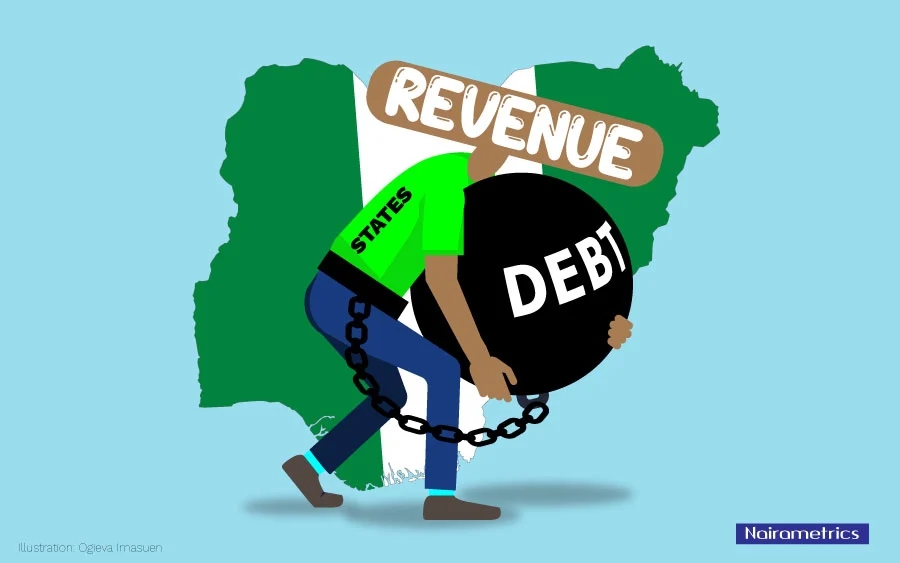The Federal Government ended 2022 with a fiscal deficit of N7.5 trillion or 129% of actual revenue collected. The government had budgeted a revenue of N9 trillion and a deficit of N5.2 trillion.
This is according to data extracted from the 2022 budget implementation report released by the Budget office.
According to data from the budget office, the federal government received a total revenue of N5.8 trillion down from N6.7 trillion received in the same period in 2021.
However, it spent N5 trillion on recurrent non-debt expenditures with personal costs gulping N3.49 trillion of the total.
Debt service cost the government a whopping N5.65 trillion during the year representing a staggering 97.4% of budgeted revenue. This compares to N4.2 trillion incurred in 2021 or 62.8% of budgeted revenue.
Included in the debt service was N1.8 trillion in ways and means while N2.5 trillion and N1.1 trillion were spent on domestic and foreign debt service respectively.
READ ALSO: FG spends N912.32bn to service loans from CBN in Q1 2023
In terms of capital expenditure, the federal government was only able to spend N1.89 trillion lower than the N1.9 trillion it incurred in 2021 and about 50% lower than its target of N3.6 trillion.
The budget office also confirmed that overall, the N7,523.71 billion deficits recorded in 2022 represent a budget-deficit to GDP ratio of 3.77% which is above the target rate of 3.0% as stipulated in the FRA 2007. The deficit was financed in part through ₦510.21 billion in foreign borrowing and ₦3,654.12 billion in domestic borrowing.
The report also buttressed this view stating that the government will continue to fast-track efforts towards accelerating economic growth and improving revenue generation which are vital to the successful implementation of the annual Budgets.
The government spent a whopping N5 trillion on recurrent non-debt expenditure, with personal costs taking up N3.49 trillion.
Moreover, the debt service cost stood at N5.65 trillion, which is an alarming 97.4% of the budgeted revenue.
AdvertisementAccording to the budget office, “efforts to restrain the growth in recurrent expenditure and particularly personnel expenditure in 2024 and beyond is critical even as effective implementation of measures to address the security challenges continue to be a government priority. “
READ ALSO: NCC warns telemarketing, loan app companies against illegal use of subscribers’ phone numbers
The DMO also cited the need to address the issue of non-essential fiscal deductions to free up resources for budget implementation at all tiers of government.
Large fiscal deficits can contribute to a currency crisis by increasing the money supply, thereby causing inflation and devaluing the domestic currency.
This can lead to higher interest rates as the government borrows more to cover the deficit, further eroding investor confidence and triggering capital flight.
The depletion of foreign reserves, used to stabilize the currency, exacerbates the situation.
Thus, it is no surprise that Nigeria continues to experience a currency crisis as the expansive money supply pumped into the economy by the government did not lead to economic growth, rather it exacerbated the level of inflation in the country.

 Comments and Issues2 days ago
Comments and Issues2 days ago
 Business6 days ago
Business6 days ago
 Business1 week ago
Business1 week ago
 Business1 week ago
Business1 week ago
 Business5 days ago
Business5 days ago
 Education7 days ago
Education7 days ago
 News6 days ago
News6 days ago
 Comments and Issues5 days ago
Comments and Issues5 days ago
















